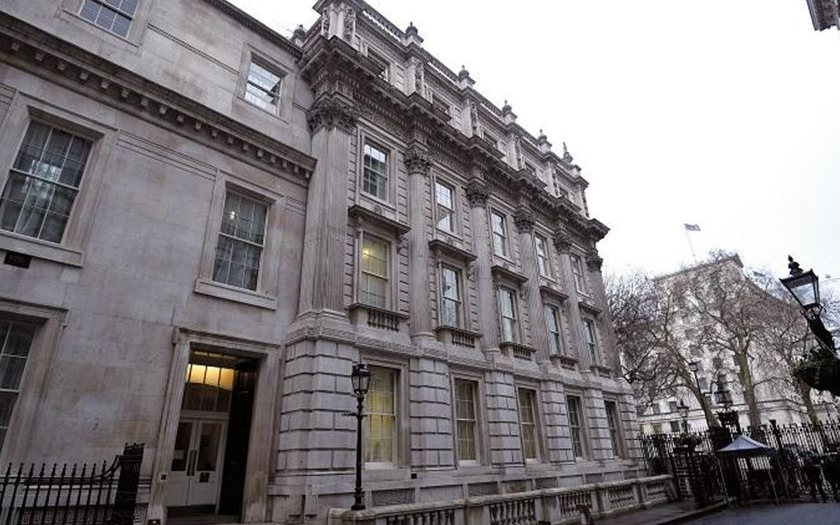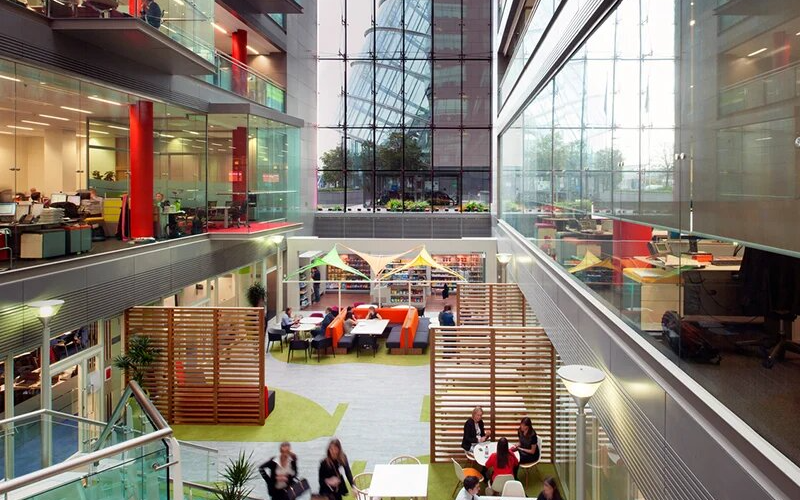Surge in office conversions as landlords chase flexible workspace trend
By April Lara
August 21, 2024

Photo of an office
A surge in office conversions is sweeping the UK as landlords race to meet the escalating demand for flexible workspaces. New research by InfinitSpace, a workspace provider, showed that 23% of UK office landlords have converted existing offices into flexible or co-working spaces over the past two years and 22% plan to do the same in the next two years. The reason is that 57% of landlords said that the transition is to stay aligned with current market trends, while 54% find that it’s a way to keep up with their competitors.
These new spaces incorporate design elements like biophilia, technology integration, and collaborative areas to accommodate diverse workstyles and enhance employee well-being.
Flexibility and adaptability
Today’s dynamic work environment with diverse work styles and team sizes is paramount for flexible workspaces. The need for flexibility and adaptability becomes even more important. Several key design elements make the transformation easier, such as modular furniture and movable partitions.
In 2022, JLL, a global real estate services company conducted a Workforce Preferences Barometer that revealed companies are being drawn to modular furniture despite the increased demand from employees to raise health and wellbeing standards. The trend towards resimercial design, which blends home comforts with office functionality, is evident in many UK offices.
Companies like Campaign Monitor showcase this with their multi-use areas featuring reconfigurable modular furniture. This allows for diverse workspaces.
Biophilic design
Biophilic design seeks to harness the power of nature to enhance the built environment. It incorporates elements of the natural world into workspace design, such as plants, natural light, and natural materials. Studies have shown that exposure to these natural elements can reduce stress, improve mood, and enhance cognitive function significantly.
A study by Vrije University Medical Centre in Netherlands found that individuals exposed to images of nature experienced lower stress levels and felt more rested compared to those who viewed urban scenes. Another peer-reviewed study published in Nature Communications revealed that time spent in natural surroundings equates to approximately £4.5 trillion in improved mental health benefits every year. These findings highlight the economic and social returns of biophilic design.
As organisations prioritise employee well-being and productivity, biophilic design provides a tangible solution.
Technology integration
The modern workspace is increasingly reliant on technology to drive collaboration and productivity. Smart meeting room technology, such as digital whiteboards, video conferencing systems, and wireless presentation capabilities, enhances collaboration and efficiency. Wireless charging stations offer convenience and reduce cable clutter, while high-speed internet connectivity guarantees smooth operations.
Ergonomic workstations and adjustable desks are also critical components of technology-driven workspaces. They prioritise employee well-being by preventing musculoskeletal issues and promoting a healthier work-life balance.
Wellness focus
Fitness centres, meditation rooms, and outdoor spaces are now standard features in many modern offices. They provide opportunities to relax, exercise, and recharge. A good example is the Spotify office in London. They invested heavily in creating a workspace that supports employee well-being with state-of-the-art gyms, relaxation areas, and even a sleep pod.
Community building
A strong sense of community in an office space is necessary for employee morale, collaboration, and retention. Shared spaces and social activities can help cultivate these connections.
For example, the offices of Barclays in Canary Wharf exemplify a strong focus on community building. The bank has invested in creating various shared spaces, including a rooftop garden, cafes, and relaxation areas, to encourage employee interaction and well-being. They also offer a range of employee wellness programs and social events, fostering a strong sense of belonging among its workforce.
The future of work hinges on the ability to create spaces that not only accommodate but enhance human experience. By merging biophilia, technology, and a strong sense of community, the office can evolve from a mere workspace to a catalyst for innovation, well-being, and organisational success.
Be part of the Fit Out Awards Ireland. Download the entry guide here. Book your table now for the Fit Out Awards UK.







.png)